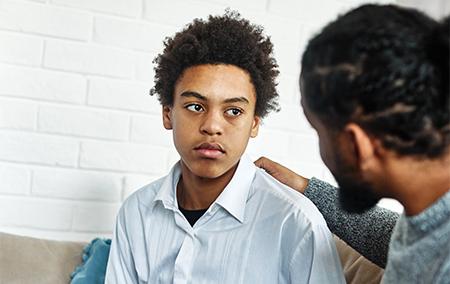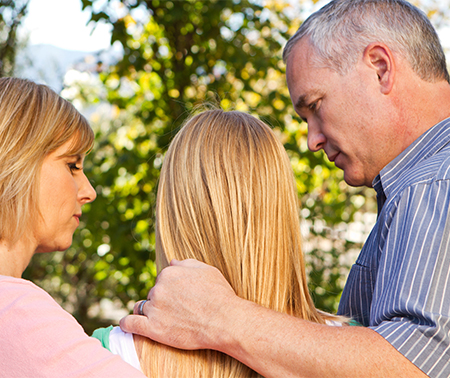 Parenting a child with anxiety or OCD is hard.
Parenting a child with anxiety or OCD is hard.
You see your child struggling with anxiety, and you desperately want to help. You have been accommodating and even letting them avoid the things that have been making them anxious.
But despite re-arranging your whole family’s life, their anxiety just seems to get worse.
The tension in the house grows as your child’s world gets smaller and smaller.
Children are not prepared to face danger.
To understand the foundations of parent support training (SPACE), think of the concept of “fight-flight-freeze.” As adults, when faced with danger, you may sprint away, stand up to the danger, or simply become paralyzed.
Children, however, are born physically and psychologically unprepared to contend with danger. Rather, they rely on caretakers (typically parents) when dealing with a threat or danger. Parents provide protection from the threat, reassurance of safety when appropriate, and aid in the regulation of inner states of arousal.
In a child, this behavior might look like crying, pleading, or refusing – or seeking reassurance that they are safe. They communicate their feelings to their caregiver, who is their support system and defense mechanism.
 Anxiety in children is not a one-person event.
Anxiety in children is not a one-person event.
It’s really an interpersonal event between the parent and child. The child sends distress signals to the parent, and the parent picks up the signals and responds appropriately.
Given this important information we know that children naturally rely on parents in coping with difficult situations. Rather than providing therapy directly to anxious children, it’s parents who go through training to learn strategies that will help their kids overcome their anxiety.
Parent support training focuses on two primary changes in parents: increasing supportive responses and decreasing accommodating behaviors.
Accommodations can prove useful in some situations, however research has shown that parental accommodation is associated with worse symptoms over time. Accommodations can help maintain existing patterns of anxiety, promoting avoidance and reinforcing pathological beliefs and not allowing the child to see that they can conquer a behavior despite being uncomfortable or anxious.
In therapy, we will help parents identify the accommodations they are currently doing and gradually and systematically reduce those accommodations.
Treating a child with anxiety or OCD is counter-intuitive to how we parent.
Parent support training aims to affect change in the family’s behavior by teaching parents how best to respond to their anxious child.
Through our work together, parents can develop the tools to address their child’s anxiety effectively and learn how to reduce some of their own accommodating behaviors.
Instead of avoiding and accommodating the anxiety, we teach you ways to support your child while getting back to your normal family life.
Stop ‘wondering’ what to do to help your child.
Our training and experience can help ease the frustration that permeates your family’s life.
If your child is not ready or even resistant to therapy, or you want additional guidance on how to support their treatment best, call us today at (512) 957-0177 to set up an initial appointment.

